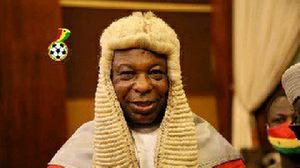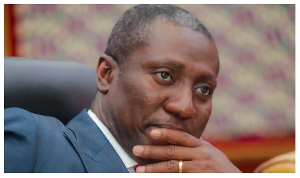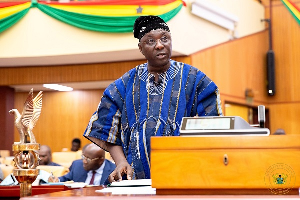


Mercy360 Blog of Sunday, 22 December 2024
Source: Mercy Mensah
Supreme Court Justice Expresses Disappointment with Ruling on Vacant Parliamentary Seats

A Supreme Court Justice, Issifu Omoro Tanko Amadu, has expressed his disappointment with the recent ruling on vacant parliamentary seats. The court's decision, which deemed the Speaker of Parliament's declaration of four parliamentary seats as vacant unconstitutional, has sparked controversy and debate.
Justice Amadu Tanko, who was one of the two dissenting judges in the case, believes that the majority ruling was flawed and could be overturned in the future. He strongly disagrees with the majority's interpretation of the Constitution, specifically Article 97, which outlines the conditions under which a Member of Parliament loses their seat.
The case centered on the Speaker of Parliament's decision to declare four parliamentary seats vacant after the MPs filed to contest parliamentary elections either as independent candidates or under a different political party. The Speaker's decision was challenged in court, leading to the Supreme Court's ruling.
Justice Amadu Tanko's dissenting opinion highlights the deep divisions within the court on this issue. He believes that the majority's decision is an aberration to the established and accepted judicial position of the court, which he hopes will be reversed in the future.
The implications of the Supreme Court's ruling are far-reaching and have significant consequences for the country's parliamentary system. The decision has sparked concerns about the potential for MPs to switch parties and contest elections without losing their seats.
The ruling has also raised questions about the role of the Speaker of Parliament in declaring seats vacant. The Speaker's decision was based on his interpretation of the Constitution, but the Supreme Court's ruling has cast doubt on the legality of his actions.
Justice Amadu Tanko's dissenting opinion has added fuel to the debate, with many calling for a review of the decision. The opposition National Democratic Congress (NDC) has already indicated its intention to challenge the ruling, citing concerns about the potential for electoral manipulation.
The controversy surrounding the Supreme Court's ruling has highlighted the need for clarity and consistency in the interpretation of the Constitution. The country's electoral laws and regulations must be clear and unambiguous to prevent disputes and ensure the integrity of the electoral process.
As the country awaits the outcome of any potential challenges to the ruling, the implications of the Supreme Court's decision will continue to be felt. The controversy has sparked a national conversation about the role of the judiciary, the Speaker of Parliament, and the electoral system, and has highlighted the need for reform and clarification.
Opinions

















